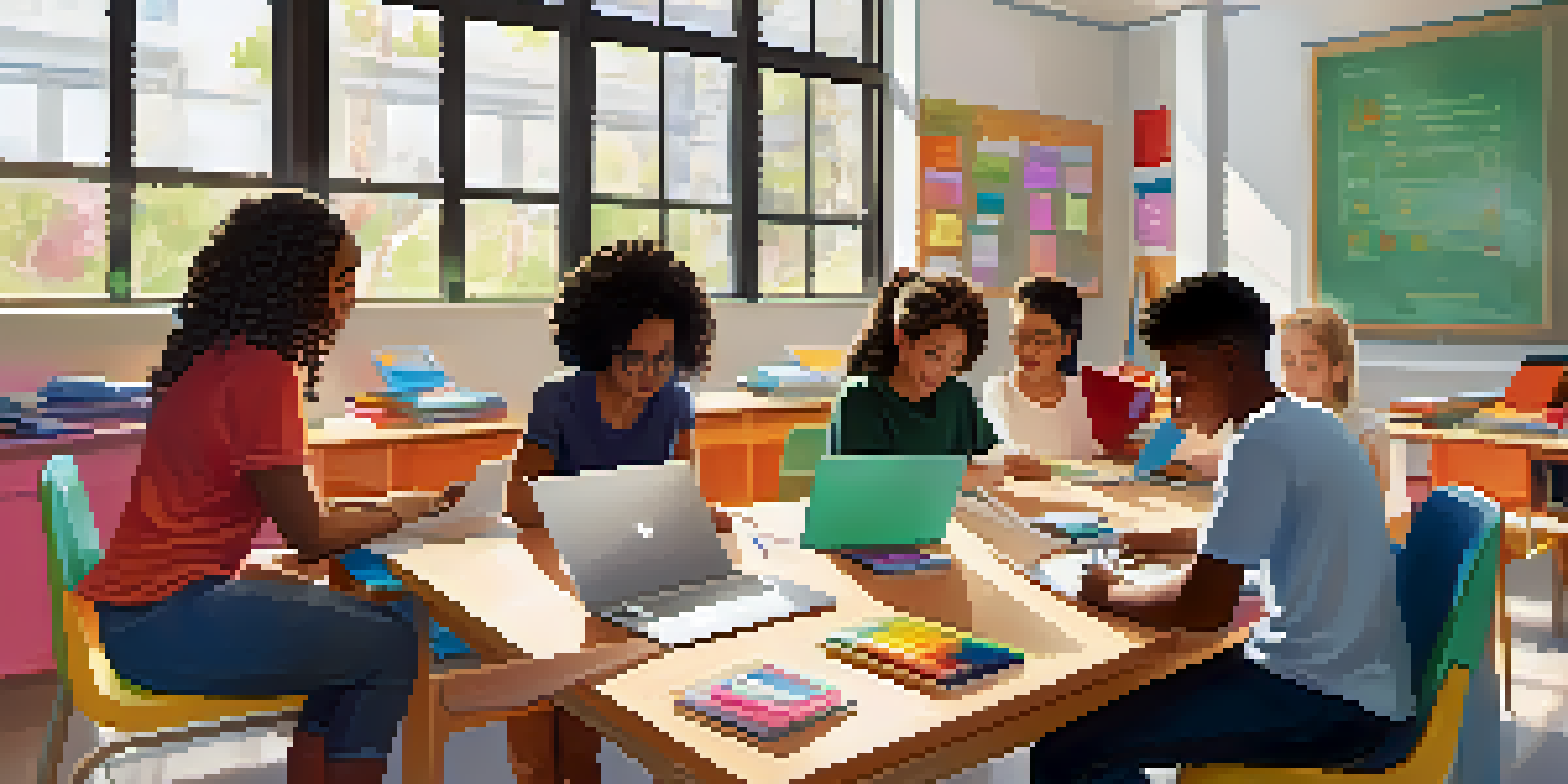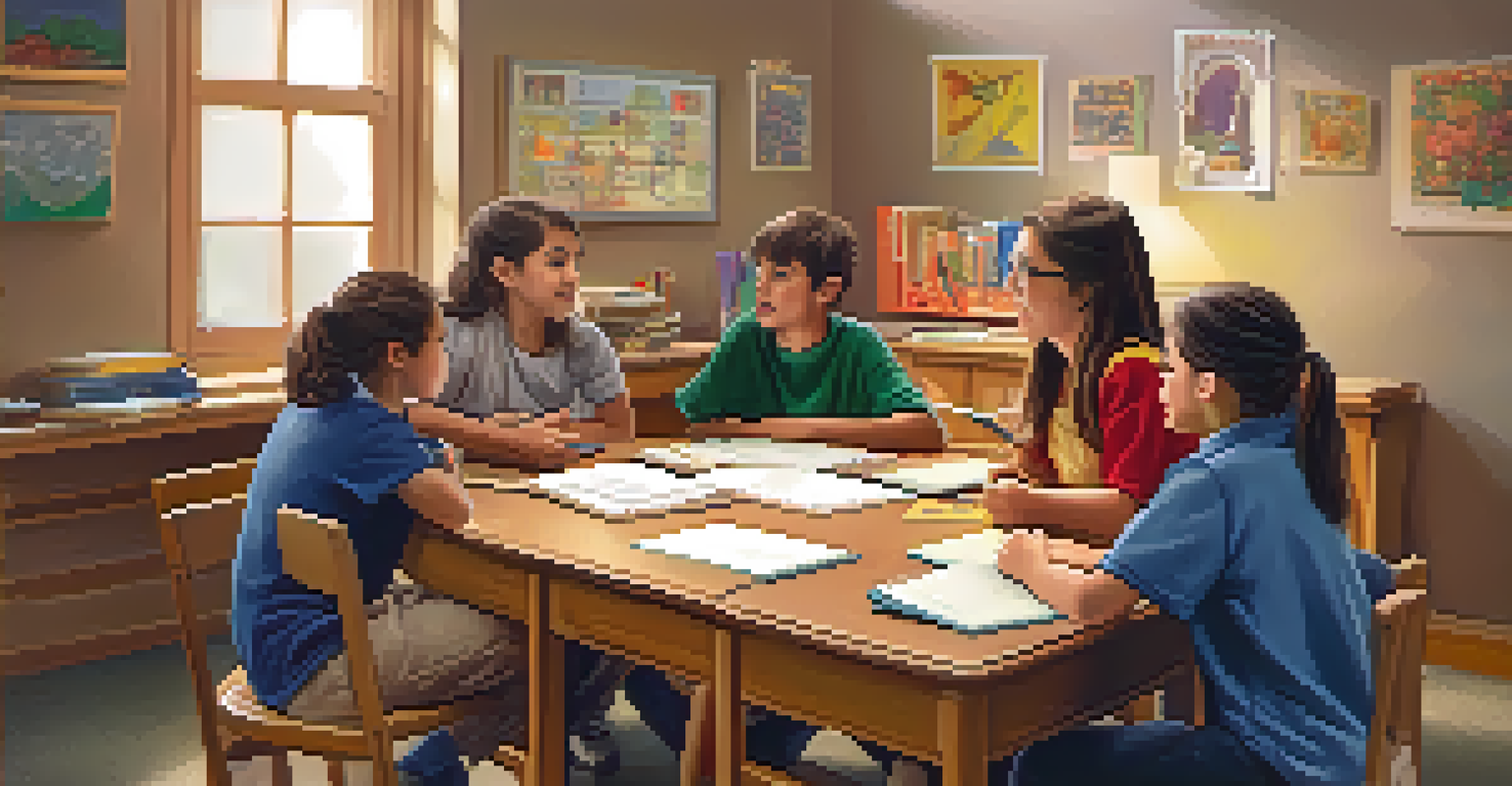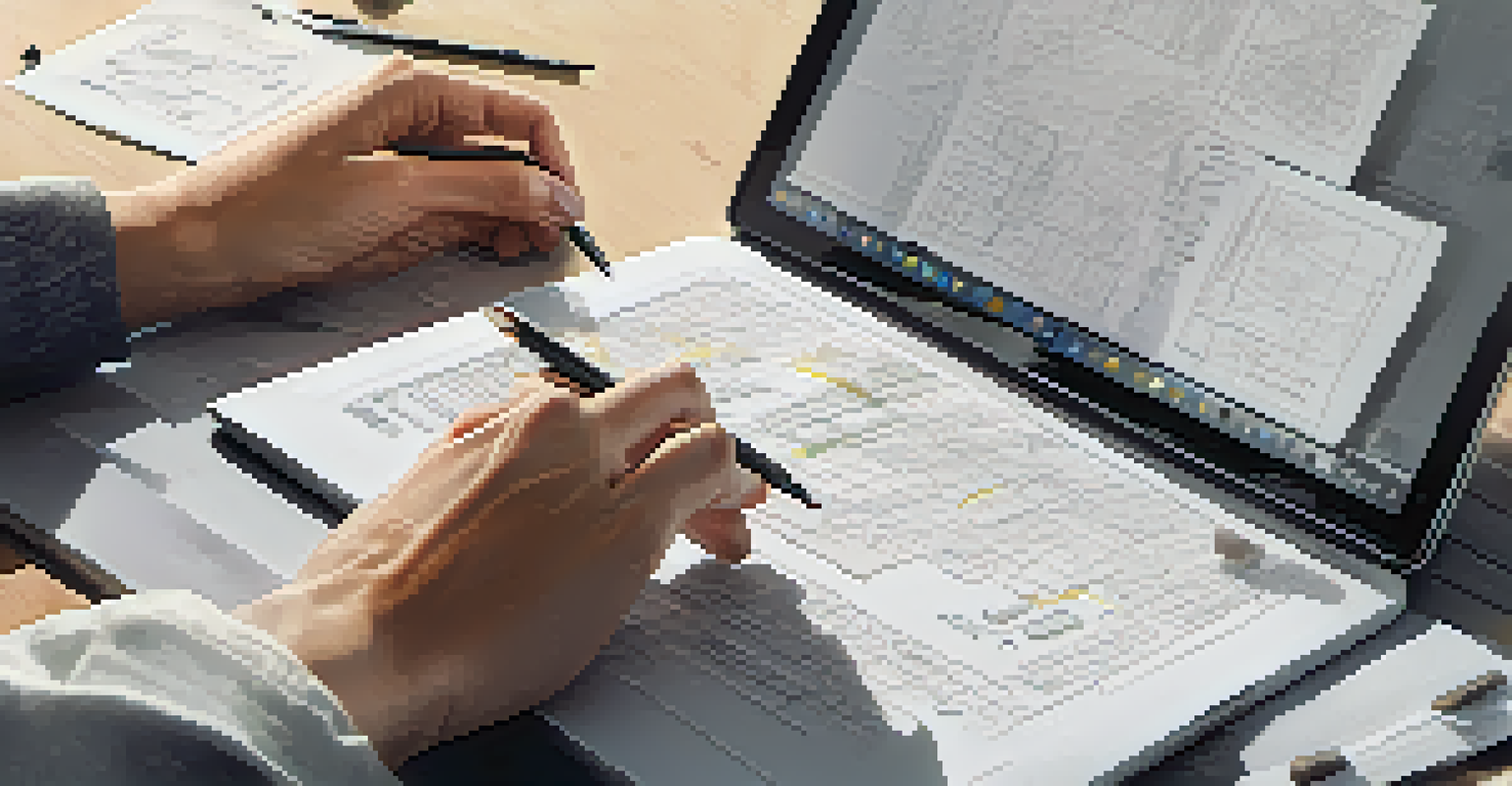Collaboration in Education: Building Teamwork Skills

Understanding the Importance of Collaboration in Education
Collaboration in education is more than just working together; it's about cultivating a sense of community. When students collaborate, they learn to appreciate diverse perspectives, which enriches their learning experiences. This collective effort not only encourages peer-to-peer learning but also fosters essential skills such as communication and problem-solving.
Alone we can do so little; together we can do so much.
In a world increasingly driven by teamwork, these skills become invaluable. Whether in a professional setting or personal relationships, the ability to collaborate effectively is paramount. By embracing collaboration in the classroom, educators equip students with tools that serve them well beyond their school years.
Moreover, collaboration promotes a positive learning environment. Students feel more engaged and motivated when they know they are part of a team working towards a common goal. This sense of belonging can significantly enhance their academic performance and overall well-being.
Creating Collaborative Learning Opportunities
To foster collaboration, educators can create structured group activities that require teamwork. Projects that involve brainstorming, decision-making, and conflict resolution allow students to practice these skills in real-time. For instance, group presentations can push students to communicate their ideas effectively and respect differing viewpoints.

Additionally, technology can play a crucial role in facilitating collaboration. Tools like collaborative documents and online discussion boards allow students to work together, regardless of their physical location. This not only prepares them for modern workplace environments but also encourages them to utilize digital tools efficiently.
Collaboration Enhances Learning
When students collaborate, they gain diverse perspectives that enrich their learning experiences and develop essential skills.
It's essential, however, to provide clear guidelines and support as students navigate these collaborative tasks. By establishing roles within groups and setting expectations, educators can help students understand their responsibilities, ensuring a productive and balanced contribution from all members.
Encouraging Effective Communication Skills
Effective communication is at the heart of successful collaboration. Students must learn to express their ideas clearly and listen actively to their peers. Educators can facilitate this learning by modeling good communication practices and providing constructive feedback on students' interactions.
Coming together is a beginning; keeping together is progress; working together is success.
Role-playing exercises can be a fun way to enhance communication skills. By putting students in different scenarios where they must negotiate, persuade, or mediate, they gain valuable insights into the importance of tone, body language, and clarity of speech. This practice can significantly boost their confidence in real-life discussions.
Moreover, encouraging students to reflect on their communication styles can lead to personal growth. By discussing what works and what doesn't in their interactions, they can become more self-aware and adaptable communicators, essential traits for any collaborative effort.
Building Trust and Respect Among Peers
Trust and respect are foundational elements of effective collaboration. When students feel safe to express their thoughts without fear of judgment, they are more likely to engage fully in group activities. Teachers can cultivate this environment by promoting inclusivity and encouraging respectful discourse.
Activities that require vulnerability, such as sharing personal experiences or challenges, can significantly deepen trust among peers. When students see that everyone has strengths and weaknesses, it fosters empathy and a willingness to support one another. This camaraderie can lead to stronger team dynamics.
Building Trust Among Peers
Creating a safe environment for sharing thoughts fosters trust and respect, leading to stronger team dynamics.
In practice, recognizing and celebrating each student's contributions can further enhance respect within the group. Whether through verbal praise or small rewards, acknowledging individual efforts helps students understand their value and promotes a positive collaborative spirit.
Emphasizing Conflict Resolution Skills
Conflict is a natural part of collaboration, and learning to resolve it constructively is crucial. Educators can introduce students to conflict resolution strategies, such as active listening and compromise, to help them navigate disagreements. Understanding that differing opinions can lead to richer outcomes is an important lesson.
Role-playing conflict scenarios can provide students with a safe space to practice these skills. By simulating a disagreement and working through it, they can learn to articulate their feelings and find common ground with their peers. This practice not only enhances their problem-solving capabilities but also prepares them for real-world situations.
Moreover, fostering an environment where conflicts are seen as opportunities for growth can shift students' mindsets. Instead of viewing disagreements as negative experiences, they can learn to embrace them as chances to develop resilience and creativity in their teamwork.
Assessing Collaboration and Teamwork Skills
To ensure that students are developing collaboration skills, assessment methods should reflect these goals. Educators can use peer evaluations, self-assessments, and group project outcomes to gauge individual contributions and teamwork dynamics. This multifaceted approach provides a comprehensive understanding of each student's collaborative abilities.
Providing feedback on both the process and the product of collaborative work is essential. Celebrating successes and discussing areas for improvement encourages a growth mindset. When students understand that collaboration is a skill they can develop over time, they are more likely to invest in their growth.
Conflict Resolution is Key
Teaching students to navigate conflicts constructively helps them develop resilience and enhances their collaboration skills.
Additionally, showcasing successful collaborative projects can motivate students. When they see their peers' achievements highlighted, it can inspire them to strive for excellence in their teamwork efforts.
The Long-Term Benefits of Teamwork Skills
The skills students develop through collaboration in education extend far beyond the classroom. In today’s interconnected world, employers consistently seek individuals who can work well in teams. By honing their teamwork skills early on, students are better prepared for future academic and professional endeavors.
Moreover, effective collaboration fosters a sense of community and shared responsibility. Students learn to value collective effort, which can lead to stronger relationships and a sense of belonging. These interpersonal skills are vital for both personal and professional success.

Ultimately, the ability to collaborate effectively can empower students to become active, engaged members of society. Whether they are working on community projects or participating in group initiatives at work, these skills will serve them well throughout their lives.